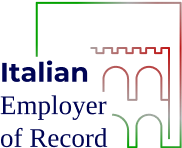26 March 2025
How to set up payroll in Italy: a guide for businesses
Italy, known for its rich cultural heritage and thriving business environment, offers significant opportunities for companies looking to expand their operations. However, successfully managing payroll in this complex landscape requires a solid understanding of the country’s unique legal framework, tax regulations, and social security requirements. For businesses unfamiliar with Italian labour laws, setting up payroll can be complex, and missteps can lead to costly fines, compliance risks, and employee dissatisfaction.
Despite these challenges, Italy’s stable economy, well-educated workforce, and strategic location within the European Union make it an attractive destination for international companies. Understanding the payroll process effectively is a legal necessity and a crucial step in building strong employer-employee relationships and maintaining a compliant, thriving business operation.
This guide is designed to help companies understand Italy’s payroll landscape, outlining the steps required to establish compliant payroll practices, explaining employer responsibilities, and exploring the benefits of leveraging expert solutions, such as an Italian Employer of Record (EOR), to simplify the process.
Legal requirements for setting up payroll in Italy
Before running payroll in Italy, employers must meet specific legal and administrative obligations. These include registering the company with Italian authorities, obtaining tax identification codes for the business and its employees, and complying with local labour laws.
Italian employment contracts are highly regulated and must clearly outline salaries, working hours, benefits, and any applicable collective bargaining agreements (CBAs). Employers should also understand the distinction between hiring employees, engaging independent contractors, and managing remote workers. Each category has unique tax responsibilities, social security contributions, and compliance requirements.
Remote payroll refers to managing and processing salaries, taxes, and benefits for employees who work from different locations, including those in other countries. It often involves handling multiple currencies, tax regulations, and local labour laws to ensure accurate and compliant compensation. Effective remote payroll systems help companies streamline payments, maintain compliance with local requirements, and support a distributed workforce efficiently.
4 steps to set up payroll in Italy
Establishing a smooth payroll process in Italy involves following four key steps, each designed to ensure compliance with local regulations, taxes, and employer obligations.
1. Register your business with Italian authorities: Businesses operating in Italy must first register with the local Chamber of Commerce and obtain a VAT number. The company must also register with the National Institute for Social Security (INPS) and the National Institute for Insurance Against Accidents at Work (INAIL).
2. Obtain tax codes and social security numbers: Employers and employees need a codice fiscale (tax code) used for tax and social security reporting. Employers must ensure that all employees have this identification before processing payroll.
3. Choose a payroll provider or software: Given the complexity of Italian payroll regulations, many companies opt to work with a local payroll provider or use specialised payroll software that integrates with Italian tax and social security systems.
4. Run payroll and ensure compliance: Once registered, businesses must process monthly payroll, which involves calculating gross salaries, deducting taxes, and making mandatory contributions. Employers must also ensure that employees receive payslips detailing earnings, deductions, and contributions following Italian law.
Payroll taxation and employer contributions
Employers in Italy are responsible for withholding income tax (IRPEF) from employee salaries and remitting it to the Italian Revenue Agency (Agenzia delle Entrate). Tax brackets are progressive, and applying the correct withholding rates is crucial to avoid underpayment or overpayment.
Moreover, employers must contribute to various social security funds, including the INPS, which covers pensions, unemployment benefits, and other social protections. Contributions vary by industry and contract type, but typically include:
- Social security contributions (INPS): A percentage of the employee’s gross salary, with separate employer and employee portions.
- Accident insurance (INAIL): Employer-only contributions to cover workplace injuries and illnesses.
- Severance pay (TFR): Employers must set aside a portion of an employee’s annual salary for severance benefits, payable upon termination or retirement.
Tax and contribution deadlines are strict, with monthly and annual filing requirements. Employers must stay on top of these deadlines to avoid penalties and ensure continuous compliance.
Payroll processing and reporting
Accurate record-keeping and timely reporting are essential for payroll compliance in Italy. Employers must provide employees with detailed payslips that clearly outline gross wages, deductions, net pay, and employer contributions. In addition, companies must file monthly tax returns, remit withheld taxes to the Italian Revenue Agency, and submit social security reports to INPS.
At year-end, employers must issue an annual statement (Certificazione Unica) detailing each employee’s earnings and tax withholdings. This document is used for employee tax filings and is also submitted to the tax authorities.
HR best practices for managing payroll in Italy
Businesses benefit from employing reliable payroll systems that ensure precise calculations and timely report submissions when managing payroll in Italy. Maintaining detailed records of employment contracts, payroll transactions, and tax filings further supports accuracy and compliance.
Regularly reviewing compliance requirements is also essential, as labour laws and tax rates may change, necessitating adjustments to payroll processes. By conducting routine payroll audits, businesses can identify and address errors before they escalate into costly problems.
Moreover, offering employees clear explanations of their payslips, tax withholdings, and benefits fosters trust and minimises confusion, creating a more transparent payroll environment.
How an Employer of Record simplifies payroll in Italy
An Employer of Record (EOR) can be a valuable partner for international companies wanting to enter the Italian market. An EOR is a third-party service provider that becomes the legal employer on behalf of a business, handling all payroll, tax, and compliance responsibilities. By partnering with an EOR, companies can:
- Ensure full compliance: The EOR stays up-to-date with Italian labour laws, tax regulations, and social security requirements, ensuring all payroll processes meet legal standards.
- Simplify payroll operations: The EOR handles all payroll calculations, tax deductions, and contributions, reducing administrative burdens for the business.
- Avoid penalties and fines: By outsourcing payroll compliance to experts, businesses can prevent costly mistakes and maintain a clean compliance record.
- Provide local expertise: An EOR offers local knowledge of Italian employment laws and regulations, making it easier for businesses to hire and manage employees in Italy.
For example, a midsize American tech company wanted to hire a small team of highly skilled developers in Italy to support its European operations. However, the company didn’t have a local office or any prior experience dealing with Italian labour laws, social security contributions, or payroll tax obligations. Establishing a full legal entity felt unnecessarily complex and time-consuming for the size of the operation.
By partnering with an EOR in Italy, the company was able to quickly onboard its Italian team. The EOR acted as the legal employer, handling all aspects of payroll processing, tax compliance, and social security contributions on behalf of the company. This ensured that every employee received the required benefits, salaries were paid on time, and all local regulations were followed.
With the EOR’s support, the company entered the Italian market seamlessly, avoided compliance risks, and concentrated on expanding its operations. The team’s productivity and collaboration improved, while the company saved time and resources by sidestepping the complexities of setting up a local legal entity.
Set up payroll in Italy
Setting up payroll in Italy is a complex process that requires careful attention to tax laws, social security contributions, and compliance regulations. By understanding the legal requirements, implementing best practices, and seeking expert guidance, businesses can successfully manage Italy’s payroll system and avoid penalties.
If your company lacks the resources or local expertise to handle payroll internally, contact us today. By partnering with an Employer of Record, you get a straightforward and compliant solution, ensuring that payroll operations run smoothly and efficiently.



